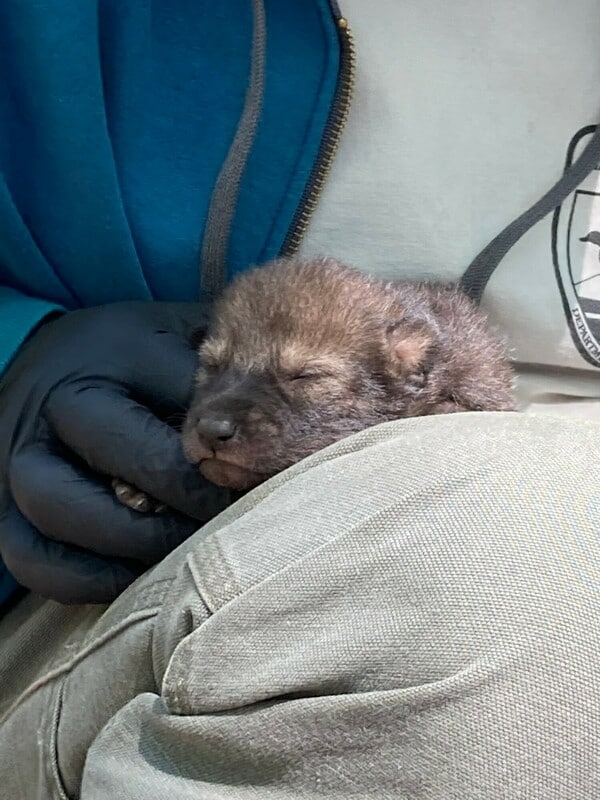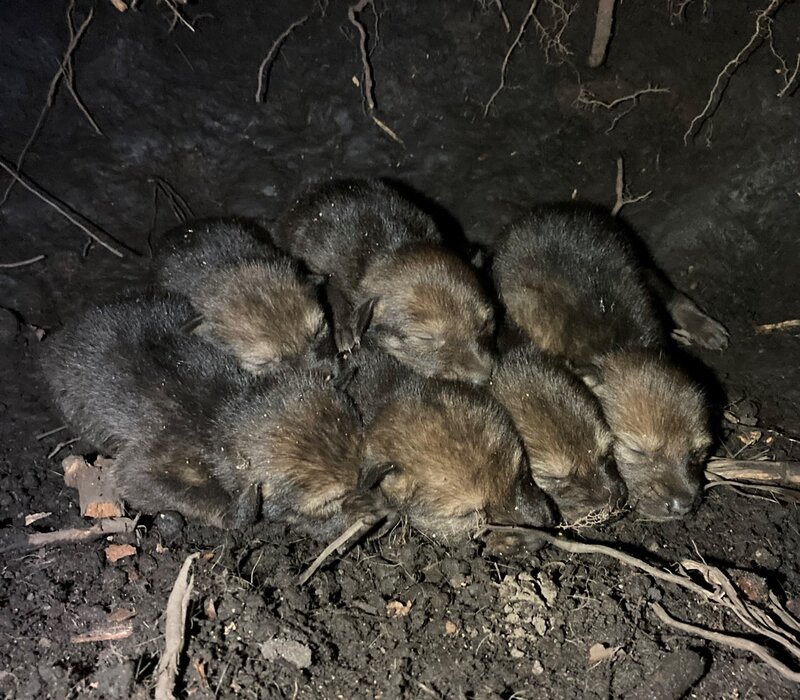Renewed hope for the critically endangered red wolf species as six new pups were born in North Carolina’s Alligator River National Wildlife Refuge.
—
For the first time in four years, a litter of six red wolf pups has been born in the wild, the US Fish and Wildlife Service’s Red Wolf Recovery Program confirmed, sparking new hope for the future recovery of the critically endangered species.
“This new litter is the first wild-born litter of red wolves since 2018. This red wolf pair was formed through the combination of several management actions and the two red wolves subsequently following their natural instincts in pairing, establishing their territory and mating,” the Red Wolf Recovery Program shared on Facebook. “Every generation yields a newborn hope for the red wolf… a cause for joy and celebration!”

Since 2015, The US Fish and Wildlife Service has largely abandoned its recovery efforts. But the agency announced in February that it will commit significant resources to revitalise its programme and ensure a full recovery for the species in the wild. One action they took was the release of seven captive-bred red wolves into the wild population, which is made up of a pack of two adults and three pups.
Once widely common in eastern and south central regions of the US, the red wolf is now one of the most endangered species in the US, with less than 20 individuals remaining in the wild across five sparsely populated counties in eastern North Carolina. Though the animal is protected under the Endangered Species Preservation Act in 1967, its population numbers have dropped significantly over the past few decades due to human activity such as hunting and habitat destruction.
In 2021 alone, seven red wolves were confirmed killed by vehicle strikes, gunshots and other unknown causes, with the former two remaining to be the biggest threats to the species.
The dwindling population has also not added any new pups in recent years either. The last birth of red wolf pups occurred in 2018, when four pups were born, highlighting the grim future for the survival of the species.
But under the new programme, the Service has renewed matchmaking efforts to boost reproductive processes and encourage adult wolves to pair, establish their territory, and mate.
Many environmentalists have praised the agency’s efforts and hopes for continued success. “There’s a clear cause-and-effect relationship between the Service’s recovery efforts and the survival and reproduction of red wolves in the wild,” said Perrin de Jong, from the environmental non-profit Center for Biological Diversity. “It’s tremendously encouraging to see the agency trying to protect and recover wild red wolves again. My heart is filled with hope at the sight of a new generation of red wolves taking their rightful place on the landscape.”
Featured images by: Red Wolf Recovery Program, US Fish and Wildlife Service


















